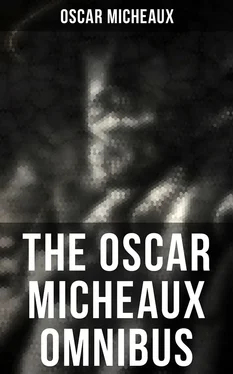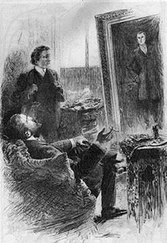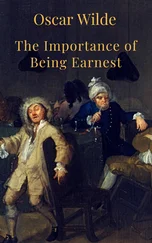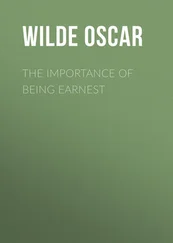And now lest we forget Calias. Calias was located one and one-half miles east, and three miles south of Megory, and five miles straight west of Kirk. If the C. & R.W. extending its line west, should strike all the government townsites, as was claimed by people in these towns, who knew nothing about it, and Calias, it would have run from Kirk to Megory in a very unusual direction. Indeed, it would have been following the section lines and it is common knowledge even to the most ignorant, that railroads do not follow section lines unless the section lines are directly in its path. If the railroad struck Kirk and Megory, it was a cinch it would miss Calias. If it struck Calias, perched on the banks of the Monca Creek, the route the Nicholsons, as promoters of the town, claimed it would take; the road would miss all the towns but Calias. This would have meant glory and a fortune for the promotors and lot holders of the town. It would also have meant that my farm, or at least a part of it, would in time be sold for town lots.
After I got so badly overreached in dealing in horses, for a time the opinion was general that the solitary negro from the plush cushions of a P——n would soon see that growing up with a new country was not to his liking, and would be glad to sell at any old figure and "beat it" back to more ease and comfort. This is largely the opinion of most of the white people, regarding the negro, and they are not entirely wrong in their opinion. I was quite well aware that such an opinion existed, but contrary to expectations, I rather appreciated it. When I broke out one hundred and twenty acres with such an outfit as I had, as against many other real farmers who had not broken over forty acres, with good horses and their knowledge of breaking prairie, acquired in states they had come from, I began to be regarded in a different light. At first I was regarded as an object of curiosity, which changed to appreciation, and later admiration. I was not called a free-go-easy coon, but a genuine booster for Calias and the Little Crow. I never spent a lonesome day after that.
The Nicholson Brothers, however, gave the settlers no rest, and created another sensation of railroad building by their new contention that the railroad would not be extended from Oristown, but that it would be built from a place on the Monca bottom two stations below Oristown, where the track climbed a four per cent grade to Fairview, then on to Oristown. They offered as proof of their contention that the C. & R.W. maintained considerable yardage there, and it does yet. Why it did, people did not know, and this kept everybody guessing. Some claimed it would go up the Monca Valley, as Nicholson claimed. This much can be said in favor of the Nicholsons, they were good boosters, or "big liars," as their rivals called them, and if one listened long and diligently enough they would have him imagine he could hear the exhaust of a big locomotive coming up the Monca Valley. While the people in the government townsites persisted loudly that the C. & R.W. had contracted with the government before the towns were located, to strike these three towns, and that the government had helped to locate them; that furthermore, the railroad would never have left the Monca Valley, which it followed for some twenty miles after leaving the banks of the Missouri. All of which sounded reasonable enough, but the government and the railroad had entered into no agreement whatever, and the people in the government towns knew it, and were uneasy.
I had been on my claim just about a year, when one day Rattlesnake Jack's father came from his home on the Jim River and sold me her homestead for three thousand dollars. My dreams were at last realized, and I had become the owner of three hundred and twenty acres of land; but my money was now gone, when I had paid the one thousand, five hundred dollars down on the Rattle Snake Jack place, giving her back a mortgage for the remaining one thousand, five hundred at seven per cent interest, and it was a good thing I did, too. I bought the place early in April and in June the Interior Department rejected the proof she had offered the November before, on account of lack of sufficient residence and cultivation. The proof had been accepted by the local land office, and a final receipt for the remaining installments of the purchase price, amounting to four hundred and eighty dollars, was issued. A final receipt is considered to be equivalent to a patent or deed, but when Rattlesnake Jack's proof of residence got to the General Land Office in Washington, in quest of a patent, the commissioner looked it over, figured up the time she actually put in on the place, and rejected the proof, with the statement that it only showed about six month's actual residence. At that time eight month's residence was required, with six months within which to establish residence; but no proof could be accepted until after the claimant had shown eight month's actual and continuous residence.
From the time the settlers began to commute or prove up on the Little Crow, all proofs which did not show fully eight month's residence, were rejected. This was done mostly by the Register and Receiver of the Local Land Office, and many were sent back on their claims to stay longer. Many proofs were also taken by local U.S. Commissioners, County Judges, and Clerks of Courts, but these officers rarely rejected them, for by so doing they also rejected a four dollar and twenty-five cent fee. About one-third of the persons who offered proof at that time had them turned down at the Local Land Office. This gave the local Commissioners, County Judges, and Clerks of Courts, a chance to collect twice for the same work. It may be interesting to know that a greater percentage of proofs rejected were those offered by women. This was perhaps not due to the fact that the ladies did not stay on their claims, so much as it was conscientiousness. They could not make a forcible showing by saying that they had been there every night, like the men would claim, but would say instead that they had stayed all night with Miss So-and-So this time and with another that time, and by including a few weeks' visit at home or somewhere else, they would bungle their proofs, so they were compelled to try again.
A short time after this and evidently because so many proofs had been sent back, the Interior Department made it compulsory for the claimant to put in fourteen months' actual residence on the claim, before he could offer proof. With fourteen months, they were sure to stay a full eight months at least. This system has been very successful.
When Rattlesnake Jack was ordered back, after selling me the place, she wanted me to sign a quit claim deed to her and accept notes for the money I had paid, which might have been satisfactory had it not been that she thought I had stopped to look back and failed to see the rush of progress the Little Crow was making; that the long anticipated news had been spread, and was now raging like a veritable prairie fire, and stirred the people of the Little Crow as much as an active stock market stirs the bulls on the stock exchange. The report spread and stirred the everyday routine of the settlers and the finality of humdrum and inactivity was abrupt. It came one day in early April. The rain had kept the farmers from the fields a week. It had been raining for nearly a month, and we only got a clear day once in a while. This day it was sloppy without, and many farmers were in from the country. We were all listening to a funny story Ernest Nicholson was telling, and "good fellows" were listening attentively. Dr. Salter, a physician, had just been laid on a couch in the back room of the saloon, "soused to the gills," when in the door John M. Keely, a sort of ne'er do well popular drummer, whose proof had been rejected some time before, and who had come back to stay "a while longer", stumbled into the door of the local groggery. He was greeted with sallies and calls of welcome, and like many of the others, he was "feeling good." He sort of leaned over, and hiccoughing during the intervals, started "I've," the words were spoken chokingly, "got news for you." He had by now got inside and was hanging and swinging at the same time, to the bar. Then before finishing what he started, called "Tom," to the bar tender, "give me a whiskey before I", and here he leaned over and sang the words "tell the boys the news." "For the love of Jesus Keel" exclaimed the crowd in chorus "tell us what you know." He drained the glass at a gulp and finally spit it out. "The surveyors are in Oristown."
Читать дальше












